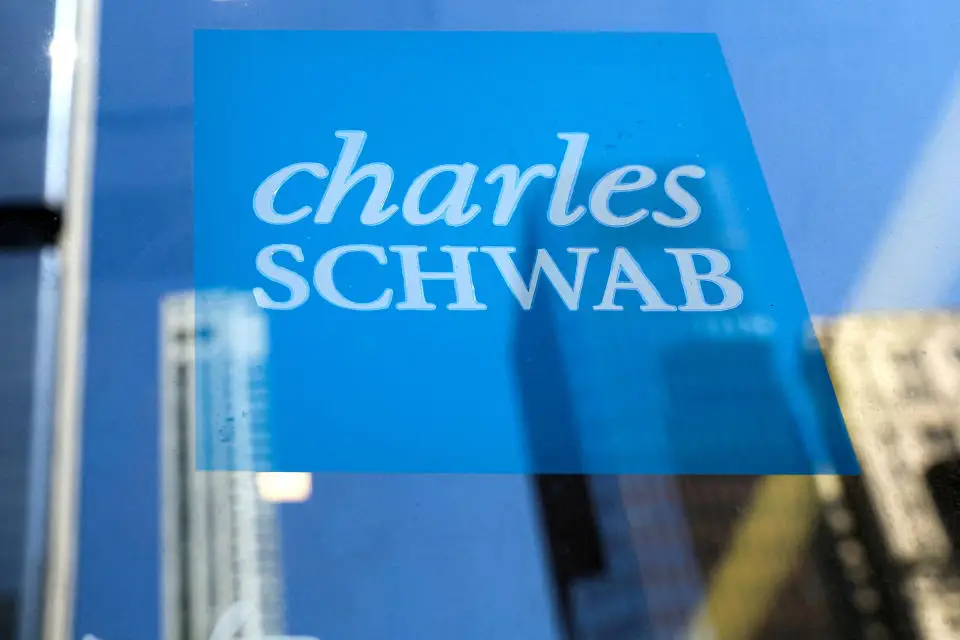Old-school finance and the upstart world of crypto are coming closer together as President Donald Trump encourages more favorable regulation of digital assets while also participating financially in their rising popularity.The latest example of this confluence came this past week when the president’s namesake Trump Media & Technology Group (DJT) announced plans to expand into financial services by launching a company called Truth.Fi.Trump Media will allocate up to $250 million of Truth.Fi’s cash into cryptocurrencies and other investments. The company keeping custody of those funds will be one of America’s best-known financial giants: Charles Schwab (SCHW). The company logo for Charles Schwab is displayed at a location in New York City. REUTERS/Brendan McDermid/File Photo · REUTERS / ReutersSome other big names on Wall Street may soon be looking to hold crypto assets for their clients as a result of a change put in place by Trump’s administration during his first week in office.The Securities and Exchange Commission decided to eliminate a piece of accounting guidance known as Staff Accounting Bulletin 121 (SAB 121) that called for financial institutions to hold crypto on their balance sheet as a liability.The old guidance made it too costly for most regulated banks to offer crypto custody. It also called for heightened public disclosures from non-bank financial firms such as Coinbase Global (COIN), a major cryptocurrency exchange.”Bye, bye SAB 121! It’s not been fun,” SEC commissioner Hester Peirce said in an X post celebrating the change.Kevin Fromer, CEO of bank advocacy group Financial Services Forum, called the SEC rule change “a step in the right direction.”The thinking within crypto circles is that this one step is part of a directional shift that will ultimately encourage more banking giants to deal with digital assets. Such a shift would bring wider acceptance of the industry.Letting more US financial institutions hold digital assets will lead to “a greater level of integration of crypto in mainstream financial channels,” said Jeffrey Neuburger, head of the blockchain group at law firm Proskauer.What’s more, “crypto is likely to become a more common investment asset like securities, gold, or other precious metals,” Neuburger added.Banks are still waiting for new guidance on crypto assets from the Federal Reserve, the Federal Deposit Insurance Corporation (FDIC), and the Office of the Comptroller of the Currency (OCC).The current regulatory guidance from those agencies — released weeks after a 2022 crypto meltdown that followed the collapse of cryptocurrency exchange FTX — cautions banks about the risk of engaging in crypto activities or even providing the industry with banking services.The Trump administration has yet to nominate new heads for the FDIC and OCC, and the Federal Reserve must also name a new top banking regulator following Michael Barr’s decision to step down as vice chair for supervision by the end of Fe

